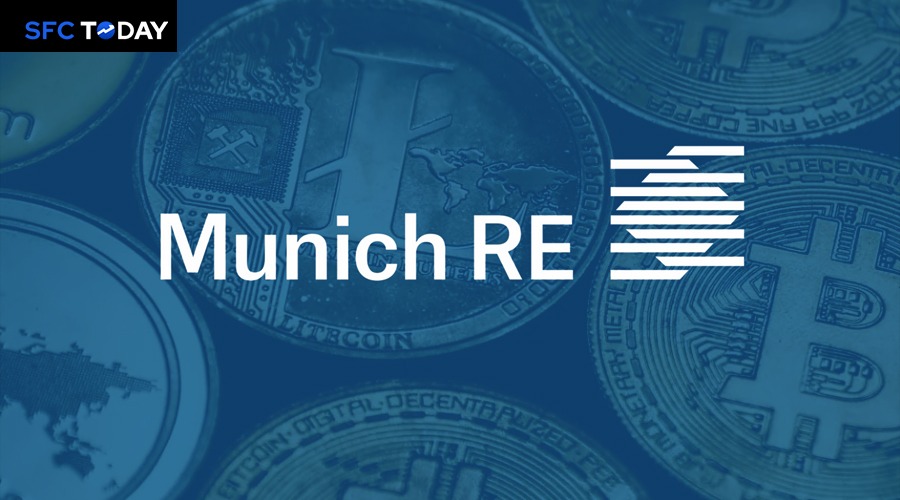Fordefi has recently secured a comprehensive cyber threat and crime insurance policy
Fordefi, a decentralized finance (DeFi) wallet firm, has recently secured a comprehensive cyber threat and crime insurance policy from Munich Re, a renowned German insurance carrier, reported by CoinDesk. Facilitated by Lockton’s Emerging Asset Protection team, the policy represents a significant step forward in safeguarding digital assets in the rapidly evolving DeFi sector. This article delves into the implications of this insurance policy, the mechanisms behind Fordefi’s security, and the broader impact on the DeFi industry.
The DeFi Landscape: A Playground for Hackers
DeFi has revolutionized the financial industry by providing decentralized, on-chain trading platforms that eliminate intermediaries and offer unprecedented financial inclusion. However, this innovation comes with its own set of challenges, primarily security. The decentralized nature of DeFi makes it a prime target for cyberattacks, internal fraud, and collusion. This has made it notoriously difficult for insurers to provide coverage, as the risks are both high and unpredictable.
Fordefi’s Security Framework
Fordefi has positioned itself as a leader in the DeFi security space by employing multi-party computation (MPC) for key sharing. MPC is a cryptographic protocol that allows multiple parties to jointly compute a function over their inputs while keeping those inputs private. This enhances the security of digital wallets by distributing the control of cryptographic keys among several parties, reducing the risk of a single point of failure.
The Insurance Policy: What It Covers
The insurance policy secured from Munich Re provides coverage for:
External Cyber Threats and Attacks: Protection against unauthorized access, hacking attempts, and other forms of cybercrime targeting the platform.
Internal Fraud and Collusion: Safeguards against fraudulent activities and collusion among employees or other insiders.
However, it is important to note that the policy does not extend to smart contract protection. Smart contracts are self-executing contracts with the terms of the agreement directly written into code. They are a fundamental component of DeFi but are also a common target for exploits due to potential bugs or vulnerabilities in the code.
Enhancing Individual Coverage
Fordefi offers its customers the ability to increase their insurance coverage from Munich Re on an individual basis. This flexibility allows users to tailor their protection according to their specific needs and risk profiles, providing an added layer of security and peace of mind.
Munich Re’s Deeper Dive into DeFi
Fordefi’s CEO, Josh Schwartz, highlighted that this insurance policy has prompted Munich Re to engage more deeply with the DeFi sector. Schwartz, who previously served as the COO at Curv (a crypto custody firm acquired by PayPal), emphasized that Munich Re is now collaborating with some of the most active players in the DeFi space. This involvement is expected to lead to further developments and innovations in DeFi insurance.
Progress in Smart Contract Risk Mitigation
While Fordefi’s current policy does not cover smart contract risks, significant strides are being made in this area. Sarah Downey, the blockchain lead at Lockton’s Emerging Asset Protection (LEAP), pointed out that the insurance industry is progressing in addressing these risks. For example:
Chainproof: This company offers coverage for technical code failures in smart contracts, providing a safety net for DeFi users against potential code vulnerabilities.
Nexus Mutual: Utilizing a decentralized capital pool approach, Nexus Mutual has become a popular option for DeFi insurance. This model pools resources from multiple participants to cover losses, distributing risk across the community.
The Role of Insurance in DeFi’s Future
The introduction of insurance products tailored to the unique needs of the DeFi sector is a crucial development. It not only provides a safeguard for users and platforms but also enhances the credibility and stability of the entire ecosystem. By mitigating risks, insurance can attract more institutional investors and foster greater adoption of DeFi solutions.
Challenges and Opportunities
Despite the progress, insuring digital assets and DeFi platforms remains a complex and challenging task. The primary challenges include:
Risk Assessment: Evaluating the risks associated with DeFi platforms requires a deep understanding of both the technology and the ever-evolving threat landscape.
Pricing: Determining the appropriate premiums for coverage is difficult due to the high volatility and unpredictability of the risks involved.
Regulatory Uncertainty: The regulatory environment for cryptocurrencies and DeFi varies significantly across different jurisdictions, adding another layer of complexity for insurers.
However, these challenges also present opportunities for innovation. Insurers that can develop robust risk assessment models and create flexible, comprehensive policies will be well-positioned to capitalize on the growing demand for DeFi insurance.
Fordefi’s cyber insurance policy with Munich Re marks a significant milestone in the maturation of the DeFi sector. By providing coverage for external cyber threats, internal fraud, and collusion, this policy addresses some of the most pressing risks facing DeFi platforms. While smart contract risks remain a challenge, ongoing efforts by companies like Chainproof and Nexus Mutual are paving the way for comprehensive coverage solutions.
As the DeFi sector continues to evolve, the role of insurance will become increasingly important. By mitigating risks and enhancing security, insurance can help DeFi achieve its full potential, driving greater adoption and fostering innovation in the financial industry. The collaboration between Fordefi, Munich Re, and Lockton’s LEAP team is a testament to the progress being made and a harbinger of further advancements in DeFi security and insurance.


